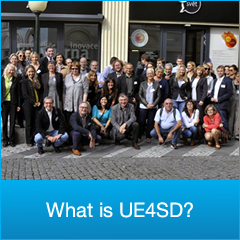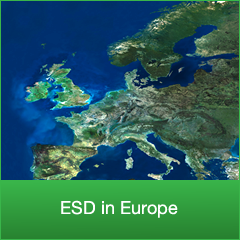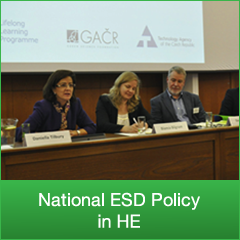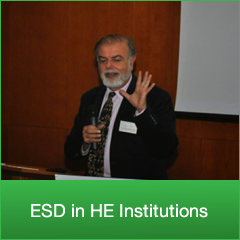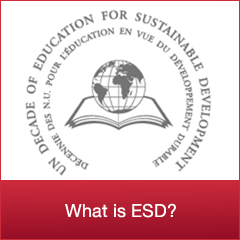ESD in Europe
At the European level, the United Nations Economic Council for Europe (UNECE) is committed to ESD and has developed strategies, frameworks and guidance for its implementation across education sectors.
Policy development for ESD has increased across the globe during the UN Decade of Education for Sustainable Development and the HE sector has become visibly engaged. The UNECE developed its Strategy for ESD (2005) which was adopted at the start of the UN Decade of ESD and reported on progress under the strategy in Learning from each other: the UNECE Strategy for Education for Sustainable Development (2009). The need for professional development has been recognised in several policy documents prepared by the EU and UNECE:
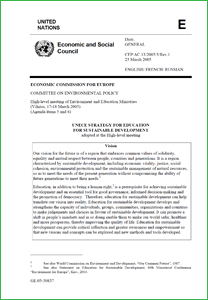
UNECE Strategy for ESD (2005)
The strategy included a priority action in phase 3 (2011-2015) to embed ESD into teacher education; commitments to implementation beyond 2015; and further action to integrate ESD into HE.
Its 2009 report on the implementation of the strategy noted the need for action to develop ESD competence, such as training for educators, action research, toolkits, platforms and exchange of experience.
The UE4SD project is guided by the UNECE ESD Competence Framework (2011) that was developed by a pan-European expert group involving 12 countries and a range of stakeholder groups. UNECE also produced further guidance and workshop tools to assist the dissemination and use of the framework.
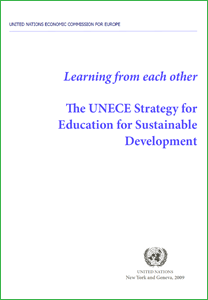
UNECE Learning from each other (2009)
The UNECE 2009 strategy noted that “implementation process is hindered by a lack of ESD competencies among staff” (Page 42) and directed projects towards improving focus on:
(a) The deliverance of training to educators;
(b) The production of materials (toolkits) and development of innovative teaching methods;
(c) The exchange of experiences at an international level;
(d) The development of knowledge through action research;
(e) The establishment of platforms to make teaching guidelines easy accessible (e.g. through virtual channels and networks).
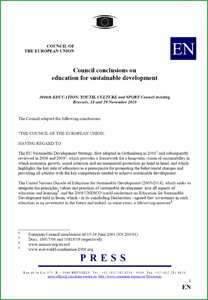
EU Council conclusions on ESD (2010)
The 2010 EU Council conclusions on ESD also highlighted the critical role of professional development and the need for training in this area:
“Teacher education and in-service training should be given a crucial role in shaping a perspective on ESD and determining how concretely to implement this in schools, VET and higher education institutions.
Depending on what they usually teach, teachers and trainers at all levels of education and training will face a variety of specific pedagogical challenges in teaching a transversal subject such as ESD, and will therefore require appropriate training” (Page 4)
European HE and professional development
European integration in HE is also helping to provide opportunities for ESD, through greater contact and co-operation across the region. This is informed by the engagement of many EU countries with the Bologna Process for consistency of standards and quality, alongside the efforts under way in certain countries to modernise their HE systems. The European Higher Education Area was launched in 2010, to generate and consolidate “comparable, compatible and coherent” systems across the region. The European Association for Quality Assurance in Higher Education (ENQA) Standards and Guidelines for Quality Assurance in the European HE Area (2009) highlight the importance of professional development as an issue for quality assurance.
More connected approaches to ESD have also started to develop across the region that will help to co-ordinate efforts across countries. In the Mediterranean strategy on ESD (MSESD) released in 2014, ESD is now being addressed as a multi-country priority that needs co-ordinated responses. European regional networks have also emerged such as the Baltic and Black Sea Circle Consortium, working in partnership to extend professional exchanges and generate new projects in ESD.
Activities of the COPERNICUS Alliance network have played an important role in networking individuals and institutions across Europe with the aim of promoting the development of sustainability and ESD in HE. The UN University network of Regional Centres of Expertise in Sustainability Education have also been important drivers for ESD and connected universities with wider global networks.





